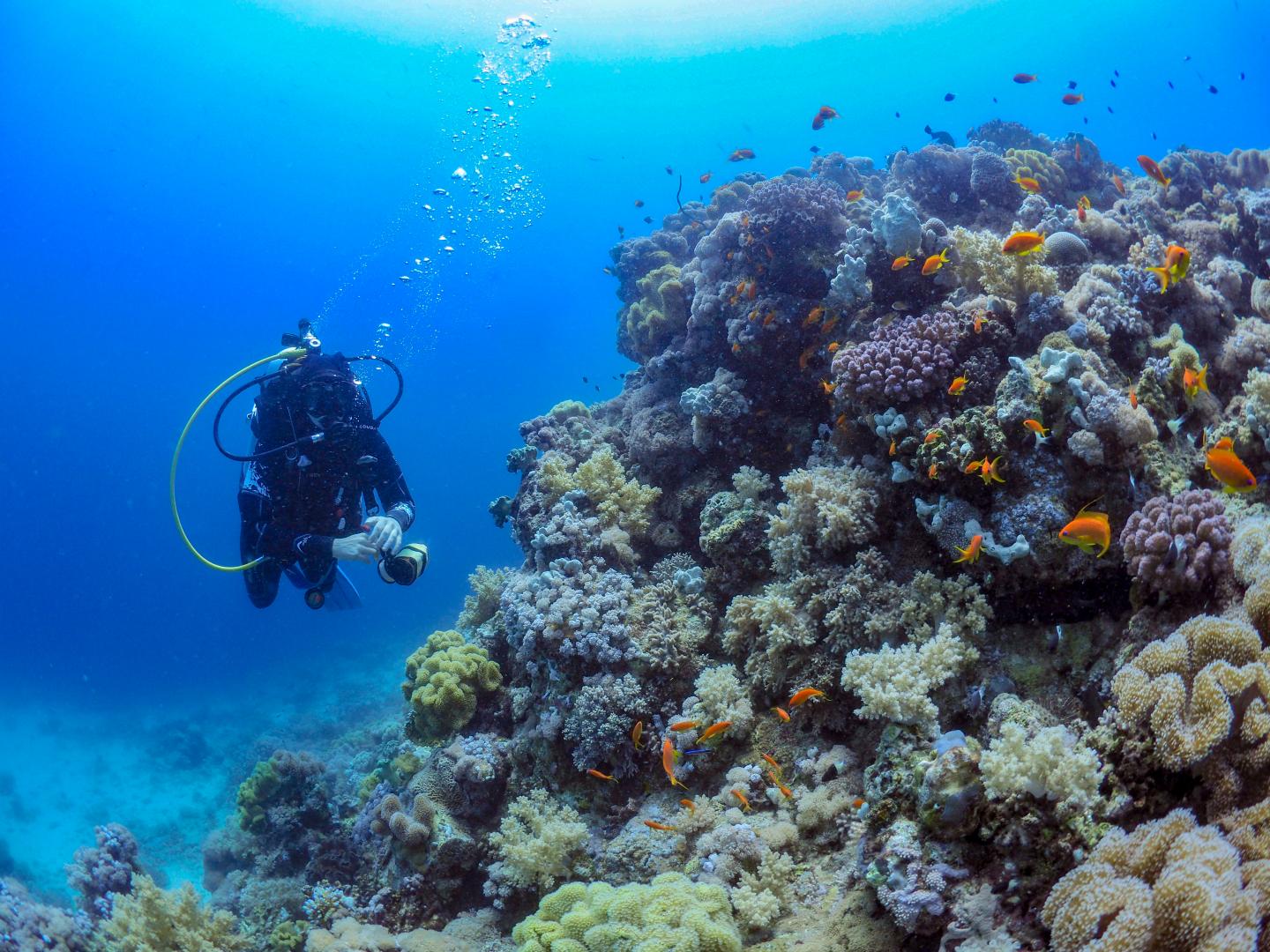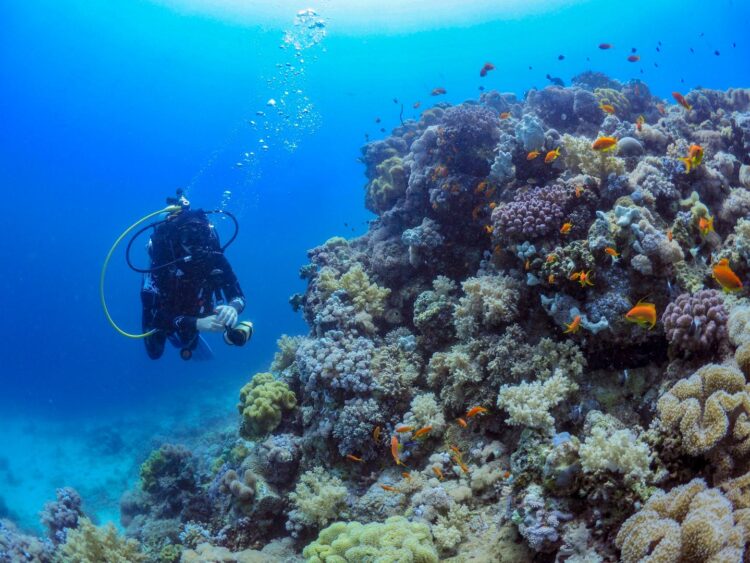
Credit: Nils Rädecker
Corals, like all animals, must eat to live. The problem is that most corals grow in tropical waters that are poor in nutrients, sort of like ocean deserts; it’s this lack of nutrients that makes the water around coral reefs so crystal clear. Because food is not readily available, corals have developed a remarkable feeding mechanism that involves a symbiotic relationship with single-celled algae. These algae grow inside the corals, using the coral tissue as shelter and absorbing the CO2 that the corals produce. In exchange, the algae provide corals with nutrients they produce through photosynthesis. These algae contain a variety of pigments, which give the coral reefs the colors they’re known for.
Over the past 35 years, tropical oceans have experienced multiple major heat waves. Scientists have observed that during these episodes, the algae – stressed by the warmer temperatures – release compounds that are toxic to the coral, prompting the coral to expel the algae from their tissue. That means the corals lose their color and their primary food source, and then begin to starve. This is the process of coral bleaching. And it has been occurring more and more frequently, threatening the survival of many reefs, including Australia’s Great Barrier Reef. Bleached corals do not necessarily die; their symbiotic algae population can be reestablished if the conditions around a reef return to normal. But if the heat persists, or is aggravated by other factors like pollution, the coral becomes too weak to survive.
In a paper published in the prestigious PNAS on 25 January, an international team of scientists that includes Nils Rädecker at EPFL’s Laboratory for Biological Geochemistry (LGB), reveals a major discovery related to how the symbiotic relationship ends between the coral and algae. “We showed for the first time that the coral starts to suffer from hunger long before the algae are expelled. The algae apparently stop providing sufficient nutrients while they are still inside the coral tissue,” he says.
When symbiosis no longer works
Scientists already knew that ocean warming is the main factor causing the symbiotic relationship to break down. But what Rädecker’s team discovered was that the coral is already in a stressed state and lacking nutrients even before the algae begin releasing toxic compounds. “The roots of the problem are much deeper than we thought, and they involve an early breakdown of the metabolic exchanges in these fascinating organisms,” says Anders Meibom, the head of LGB and a world-renowned coral expert.
Rädecker spent more than a year studying a coral reef just off the coast of Thuwal, Saudi Arabia – the city where the Red Sea Research Center, part of the King Abdullah University of Science and Technology, is located. He then replicated these environmental conditions in the aquaria at the Center so that he could investigate the corals under controlled conditions. The data were then analyzed at several laboratories, including EPFL and the Biology Department at the University of Konstanz in Germany.
Calling known facts into question
“Based on what we found, we can determine which environmental conditions other than temperature (such as water quality) stress the corals in a reef, and use this information to predict whether the reef will bleach. Our findings can also be used to identify corals that are particularly resistant to bleaching, like those in the Gulf of Aqaba and elsewhere in the Red Sea. That will tell scientists which reefs should be protected because they have a better chance of survival,” says Rädecker.
According to Meibom, this study makes a major contribution to coral research and sheds new light on earlier observations. “Nils’ research has uncovered metabolic mechanisms that play a fundamental role in the coral bleaching process – and that we didn’t understand the importance of until now. I believe he found the key to what’s actually going on inside corals when they’re stressed by global warming,” he says.
###
Media Contact
Nils Raedecker
[email protected]





